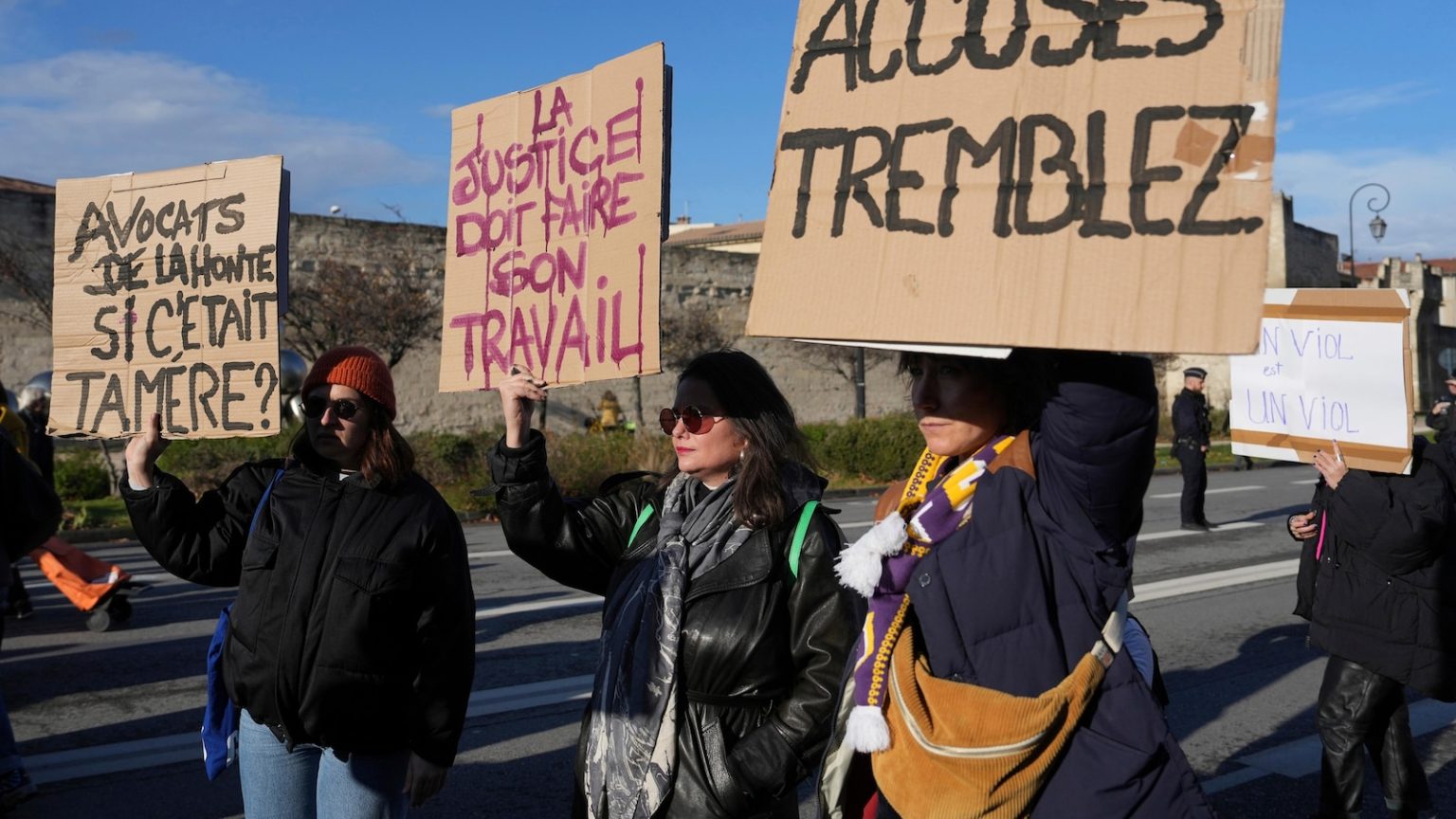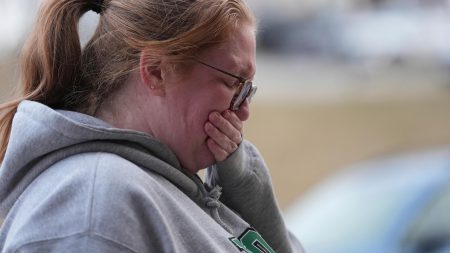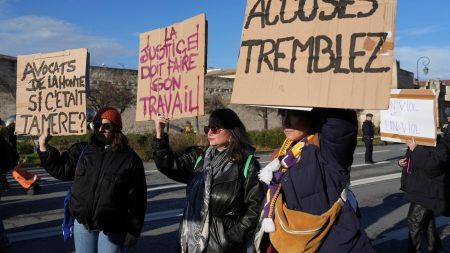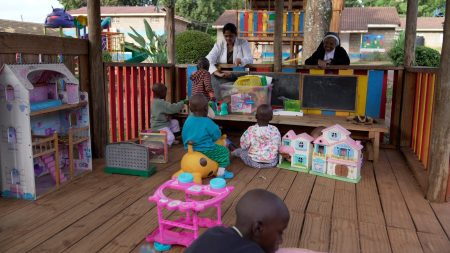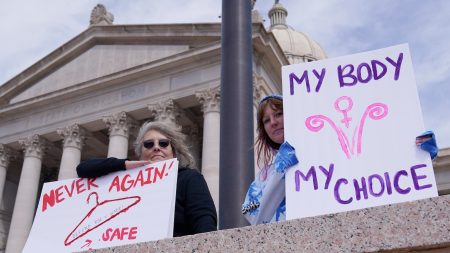The Trial of Joël Le Scouarnec: A Decades-Long Reign of Terror
In the quaint town of Vannes, France, a landmark trial is set to begin, marking the culmination of a harrowing saga of sexual abuse that has left a trail of devastation over three decades. Joël Le Scouarnec, a 74-year-old former surgeon, stands accused of raping or sexually abusing 299 victims, the majority of whom were his young patients during his medical career. The sheer scale of the allegations is nothing short of staggering, with investigators uncovering a pattern of abuse that spans from the late 1980s to 2014. The trial, expected to last four months, will see Le Scouarnec confront his accusers in a courthouse where the weight of justice hangs heavy in the air.
The accused faces up to 20 years in prison if convicted, a penalty that would add to the 15-year sentence he is currently serving for earlier convictions of rape and sexual assault of children. Le Scouarnec does not outright deny the allegations but claims a lack of memory regarding some of the incidents. This assertion is particularly poignant for many of his victims, some of whom were unconscious during their assaults and only years later began to piece together the fragmented memories of their trauma. The trial comes at a pivotal time in French society, where the once-taboo subject of sexual abuse is increasingly being brought into the light, thanks in part to the courage of activists and the survivors who are demanding justice and accountability.
Unveiling the Scale of Abuse: A Decades-Long Nightmare
The scope of Le Scouarnec’s alleged crimes is breathtaking. Over 300,000 photos and 650 video files, many containing pedophilic, zoophilic, and scatological content, were discovered during a raid on his home. These disturbing materials, along with detailed notebooks in which he described his actions and self-identified as a pedophile, paint a chilling picture of a man who meticulously documented his crimes. The victims, 158 men and 141 women, were on average just 11 years old when they were abused. Many of these assaults occurred in the very place where they should have been safest: the hospital, where Le Scouarnec preyed on children during their recovery from surgeries.
The case against Le Scouarnec began to unravel in 2017 when a 6-year-old neighbor accused him of inappropriate touching. This accusation led investigators to his home, where they uncovered the shocking evidence that would eventually link him to hundreds of victims. The discovery of his notebooks was particularly damning, as they not only detailed his crimes but also revealed a calculated and methodical approach to his abuse. Le Scouarnec had previously been convicted in 2005 for possessing and importing child sexual abuse material, yet he was allowed to continue his medical career, highlighting a troubling failure in the system that allowed him to prey on vulnerable patients for years.
Victims’ Stories: A Journey from Silence to Strength
Among the many victims is Amélie Lévêque, who was just 9 years old when she was abused by Le Scouarnec during her hospital stay in 1991. Her memories of the event are fragmented, but the emotional scars remain vivid. “I didn’t really remember the operation,” she recounted in an interview with public broadcaster France 3. “I remembered the post-operation, a surgeon who was quite mean. I cried a lot.” Years later, when she learned that her name appeared in Le Scouarnec’s notebooks, the revelation opened floodgates of emotion. “That was the beginning of the answers to a lifetime of questions, and then it was the beginning of the descent into hell,” she said. The discovery forced her to confront the truth, leading to a deep depression that left her feeling isolated, even with the support of her family.
Amélie’s story is just one among hundreds, each unique in its details but united by the common thread of trauma and betrayal. Many survivors have struggled to come to terms with their experiences, often living with unanswered questions and unresolved pain. The trial offers a glimmer of hope for closure, though it also means reliving the horrors they endured. “I felt like I had lost control of everything,” Amélie said, reflecting on the emotional turmoil that followed her realization. “I wasn’t crazy, but now I had to face the truth of what had happened.”
A Nation’s Cry for Justice: Activism and Awareness
Le Scouarnec’s trial coincides with a growing movement in France to confront the pervasive issue of sexual abuse and violence. Activists and survivors are increasingly speaking out, challenging the long-standing taboos that have protected perpetrators and silenced victims. One such case that has galvanized the nation is that of Gisèle Pélicot, who was drugged and raped by her ex-husband and multiple other men. The December 2023 conviction of the perpetrators, with prison sentences ranging from three to 20 years, has become a rallying cry for those advocating for stronger protections for victims and harsher penalties for abusers.
The trial has also drawn the attention of child protection and women’s rights groups, who view it as a critical moment in the fight against sexual violence. These organizations, along with associations representing the medical community, have called for a rally outside the Vannes courthouse on the first day of the trial. Their presence is a powerful show of solidarity with the victims and a demand for systemic change. The case has also raised uncomfortable questions about the role of institutions in enabling abuse, particularly the medical community that allowed Le Scouarnec to continue practicing despite earlier convictions.
The Evidence: A Damnating Record of Abuse
The evidence against Le Scouarnec is as extensive as it is horrifying. Investigators have pieced together a timeline of abuse that spans decades, with detailed records of his crimes found in his notebooks. These writings, along with the vast collection of disturbing images and videos, provide a damning account of his actions. The willingness of Le Scouarnec to document his crimes is particularly chilling, suggesting a level of calculation and remorselessness that is rare even among serial offenders.
The notebooks also reveal a chilling level of introspection, with Le Scouarnec openly acknowledging his pedophilic tendencies. His writings provide a window into the mind of a predator who saw his victims not as children deserving of care and protection, but as objects for his gratification. The sheer volume of evidence is overwhelming, and it paints a picture of a man who was both brazen and meticulous in his crimes. This documentation serves as a haunting reminder of the lengths to which abusers will go to conceal and justify their actions.
Facing Reality: Le Scouarnec’s Day of Reckoning
As the trial begins, Le Scouarnec’s legal team has signaled that he will not deny the allegations outright, though he claims to have no memory of some of the incidents. His lawyer, Thibaut Kurzawa, has stated that Le Scouarnec will “answer the judges’ questions” and “face up to reality,” a statement that offers little in the way of defense but acknowledges the gravity of the charges. For many of the victims, this acknowledgment, however limited, is a step toward validation, though it offers scant comfort for the pain they have endured.
The trial represents a moment of reckoning not only for Le Scouarnec but also for the systems that failed to stop him. His history of convictions and the fact that he was allowed to continue practicing medicine despite his known offenses have raised urgent questions about the safeguards in place to protect vulnerable populations. Child protection groups have joined the proceedings as civil parties, calling for legal reforms that would prevent similar abuses in the future. The trial is thus as much about accountability as it is about creating a safer and more just society for all.
Conclusion: A Call to Action and Hope for Healing
As the trial of Joël Le Scouarnec progresses, it serves as a stark reminder of the enduring impact of sexual violence and the importance of justice in the healing process. For the hundreds of victims who will confront their abuser in the courtroom, the trial is a chance to seek closure and validation. It is also a moment for French society to reckon with the cultural and systemic factors that have allowed such abuse to go unchecked for so long.
The bravery of survivors like Amélie Lévêque, who have chosen to share their stories publicly, is a testament to the power of resilience and the importance of breaking the silence that has long shrouded sexual abuse. Their voices, amplified by activists and advocates, are driving a national conversation that is long overdue. As the trial unfolds, it is not just the fate of Joël Le Scouarnec that hangs in the balance, but also the promise of a future where no child has to endure the horrors that his victims have faced. The road to healing is long, but with justice, solidarity, and a commitment to change, the hope of a better tomorrow is within reach.





